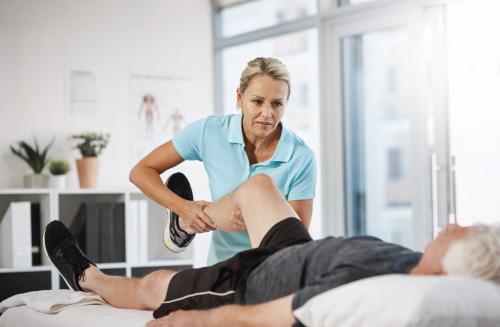The Role of Panel Physicians in Protecting Global Health
Panel physicians play a crucial role in the global health landscape, particularly in the context of immigration. These medical experts are designated by immigration authorities to conduct medical examinations on visa applicants. Their work is vital not only for the individual health assessments of immigrants but also for the broader public health goals of nations worldwide. By ensuring that immigrants meet specific health requirements, panel physicians help prevent the spread of infectious diseases and contribute to the overall safety and well-being of populations.
The Function and Responsibilities of Panel Physicians
Designation and Training
Panel physicians are selected and accredited by immigration authorities in countries such as the United States, Canada, Australia, and New Zealand. These physicians must undergo rigorous training to understand the health standards and requirements of the immigration process. This training ensures that they are prepared to conduct comprehensive medical examinations and identify health issues that might affect an individual’s eligibility for immigration.
Comprehensive Medical Examinations
The primary responsibility of panel physicians is to perform thorough medical examinations on visa applicants. These examinations typically include a review of the applicant’s medical history, a physical exam, and specific tests such as chest X-rays and blood tests. The purpose of these exams is to identify any health conditions that could pose a risk to public health or create a significant burden on the healthcare system of the destination country.
Tuberculosis Screening
One of the most critical components of the medical examination is the screening for tuberculosis (TB). TB is a highly infectious disease that can have severe public health implications if not adequately managed. Panel physicians use a combination of skin tests, blood tests, and chest X-rays to detect TB. If an applicant tests positive, further evaluation and treatment plans are initiated to address the condition before the immigration process can proceed.
Vaccination Verification
Panel physicians also ensure that immigrants are up to date with required vaccinations. This verification is crucial for preventing the spread of vaccine-preventable diseases. Common vaccinations checked include those for measles, mumps, rubella, polio, and influenza. Ensuring that immigrants are vaccinated helps maintain herd immunity and protects vulnerable populations in the destination country.
Preventing the Spread of Infectious Diseases
Early Detection and Treatment
By conducting thorough medical examinations, panel physicians can identify infectious diseases at an early stage. Early detection allows for timely treatment, reducing the risk of transmission to others. For example, identifying and treating TB in immigrants before they enter a new country helps prevent potential outbreaks and protects public health.
Reporting and Compliance
Panel physicians are required to report their findings to immigration authorities. This reporting includes documenting any health conditions that might impact an applicant’s eligibility for immigration. By providing accurate and detailed medical reports, panel physicians ensure that immigration authorities have the necessary information to make informed decisions about visa applications.
Contribution to Public Health Policy
Data Collection and Analysis
The medical data collected by panel physicians is invaluable for public health authorities. This data helps in understanding the health trends and needs of immigrant populations. For example, if a significant number of immigrants from a particular region test positive for a specific disease, public health authorities can implement targeted interventions to address the issue. This data-driven approach enhances the effectiveness of public health policies and programs.
Health Education and Promotion
Panel physicians also educate immigrants about health issues and promote healthy behaviors. During medical examinations, they provide information on disease prevention, vaccination, and general health maintenance. This education helps immigrants understand the importance of health screenings and vaccinations, contributing to better health outcomes in their new country.
Addressing Health Disparities
Access to Healthcare
Many immigrants come from regions with limited access to healthcare. Panel physicians help bridge this gap by providing necessary medical examinations and treatments as part of the immigration process. This access ensures that health issues are addressed before immigrants enter their new country, reducing health disparities and promoting equity in healthcare.
Culturally Competent Care
Panel physicians often work with diverse populations and must provide culturally competent care. Understanding and respecting cultural differences in health beliefs and practices is essential for effective communication and patient compliance. By delivering culturally sensitive care, panel physicians help build trust and ensure that immigrants receive the best possible medical care.
Challenges Faced by Panel Physicians
High Workload
Panel physicians often face a high volume of applicants, particularly in countries with large immigrant populations. Managing this workload while maintaining the quality and thoroughness of medical examinations can be challenging. Efficient scheduling, adequate staffing, and the use of advanced medical technologies can help address these challenges.
Evolving Health Standards
Health standards and requirements for immigration can change in response to emerging public health threats and advancements in medical science. Panel physicians must stay updated with these changes to ensure compliance. Continuous education and training are crucial for keeping panel physicians informed about the latest guidelines and protocols.
Language and Cultural Barriers
Language and cultural differences can pose significant challenges in the medical examination process. Effective communication is essential for obtaining accurate medical histories and providing appropriate care. Panel physicians often work with translators and cultural mediators to overcome these barriers and ensure that all applicants receive the care they need.
The Future of Panel Physician Services
Technological Advancements
Advancements in medical technology are likely to enhance the role of panel physicians in the future. For example, the use of telemedicine can facilitate remote consultations and follow-up visits, improving access to care for immigrants in remote areas. Additionally, advanced diagnostic tools and electronic health records can streamline the examination process and improve the accuracy of medical reports.
Enhanced Collaboration
Collaboration between panel physicians, public health authorities, and immigration agencies will continue to be essential. By working together, these stakeholders can develop and implement effective health policies and programs that protect public health while facilitating the immigration process.
Focus on Preventive Care
The role of panel physicians is likely to expand to include a greater focus on preventive care. By promoting vaccination, healthy behaviors, and regular health screenings, panel physicians can help prevent health issues before they arise. This preventive approach will contribute to better health outcomes for immigrants and reduce the burden on healthcare systems.
Conclusion
Panel physicians play a critical role in protecting global health by ensuring that immigrants meet specific health standards and are free from infectious diseases. Through comprehensive medical examinations, early detection and treatment of health conditions, and contributions to public health policy, panel physicians help maintain the safety and well-being of populations worldwide. Despite the challenges they face, panel physicians continue to be an essential part of the immigration process, bridging the gap between health and immigration and promoting equity in healthcare. As technology and public health policies evolve, the role of panel physicians will continue to be crucial in safeguarding global health.






Comments